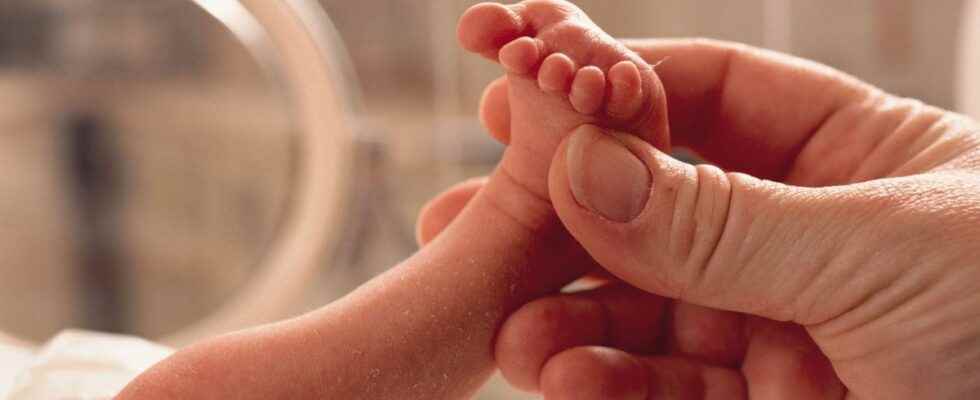Posted ,
Reading 3 mins.
Perinatal bereavement affects about ten births out of 1000 in France. A subject that is still taboo in our society and little recognized socially, but from which speech seems to be freed little by little.
“It is with deep sadness that we have to announce the death of our little boy”. In an Instagram post, footballer Cristiano Ronaldo and his girlfriend Georgina Rodriguez announced the death of one of their twins during childbirth. A drama that raises the question of perinatal bereavement.
According to the definition of the World Health Organization (WHO), we speak of perinatal bereavement when parents lose their baby between 22 weeks of amenorrhea and the 7th day after birth. In France, perinatal deaths concern 10.2 births out of 1000 according to the latest figures from the DREES.
A taboo subject
Parents who experience perinatal bereavement often face loneliness and incomprehension vis-à-vis their pain. “The mother and father know the baby by feeling, movements and ultrasound images, but relatives do not know him, explains the psychoanalyst Marie-José Parents are fighting to keep alive the memory of this child who was never born.. The co-author of the book “Perinatal bereavement and support group for mothers” (érès edition) followed a group of bereaved mothers for fifteen years. Every week, it was she who hosted the speaking engagements. “They suffered from indifference. People think that if the baby is not born, it does not matter. For them, the baby is very quickly forgotten”.
On the side of the Naître et Vivre association, speaking up is important for families. “25 years ago, when I started in the association, the people who came had experienced their bereavement several years earlier.explains Myriam Morinay, today people are younger. The profiles are varied, we find women, but also men and homosexual couples.. talk about his grief “allows you to distance the pain and to have the impression of becoming master of the situation again”encourages the vice-president of the association.
To allow parents to take part in discussion groups, Naître et Vivre has developed in the major cities of France. To join these support groups, the association offers exchanges by zoom or face-to-face in one of their branches. In addition, a telephone number can be reached 24 hours a day, 7 days a week (01.47.23.05.08), for parents or bereaved relatives.
“Parents must not feel abandoned
“A pregnancy is synonymous with life. There, it turns into mourning. It can be difficult for loved ones to broach the subject”, recognizes Marie-José Soubieux, a specialist in perinatal bereavement for 25 years. But little phrases like “Can I do something for you?”, “how do you feel?”, “we think a lot about you”can make a difference. “Parents must not feel abandoned”, she warns.
In the world of work, even if things are changing, it is more common to see single parents. “Some note that their colleague avoids them, no longer invites them to events” notes the psychiatrist. “Turnover, recruitment, projects, all of this means that in the professional environment, colleagues can move on more quickly and no longer take into account the suffering of a parent”continues Myriam Morinay.
Consult a therapist online
A word that is released little by little
Speech is becoming more and more free around this suffering that has remained silent for a long time. Films, books, testimonies flourish on the subject and also touch politics. In the preface to the book “Perinatal bereavement and support group for mothers”Marlène Schiappa, Minister Delegate to the Minister of the Interior of France in charge of Citizenship, testifies to the suffering during her miscarriage in September 2021.
“Things have changed since I took office, says Marie-José Soubieux, babies who died during pregnancy could be cremated with hospital waste”. Today, midwives and obstetricians have better knowledge and more easily refer bereaved parents to support associations.
Civil status has also adapted. Since the decree of 2009, parents can enroll their child if they wish, even several years later.
